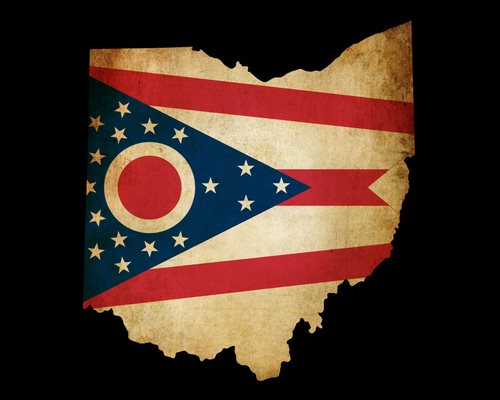The State Laws of North Carolina

Disclaimer:
Due to the fact that individual state laws are constantly subject to change, individuals are encouraged to consult an attorney prior to engaging in any activity, action, or event in which the expressed legality may come into question. Furthermore, individuals interested in attaining information with regard to individual state legislature are also encouraged to perform independent research in order to substantiate the relevancy and current state(s) of specific legislation.
North Carolina Abortion Laws
Within the state of North Carolina, Abortion is defined as the purposeful termination of a pregnancy through procedural means. Subsequent to the decision of Roe v. Wade, abortion became legal within the United States – however, North Carolina state legislation expresses a variety of stipulations with regard to a legal abortion process:
• A legal abortion may occur after 20 weeks of pregnancy in the event that the protection and preservation of the life of the mother carrying a fetus is compromised as a result of a pregnancy; an abortion can take place in order to save the life of the mother only upon accredited and sanctioned medical review
• North Carolina State protects the ‘right to choose’ granted to a Mother within the first 20 weeks of pregnancy
• An illegal abortion is deemed as an abortion process that occurs in the event that the health and wellbeing of the mother is not in danger; furthermore, an illegal abortion is defined as a procedure that occurs outside of legal, accepted, and authorized medical procedural protocol – in the state of North Carolina, unauthorized individuals conducting abortions may be charged with applicable Class Felonies and Misdemeanors
North Carolina Marijuana Laws
Within the state of North Carolina, the possession of Marijuana – or Cannabis products – as well as the acts of growing or distributing marijuana without the expressed permission of the North Carolina State Government is a punishable, criminal offense. The following penalties are associated with Marijuana within the state of North Carolina:
Possession/Under the Influence of Marijuana
1. Amount: less than 1/2 ounce
• Penalty:
• Fines:
• Classification: Misdemeanor
2. Amount: 1/2 – 1 ½ ounces
• Penalty: 1 – 120 days’ incarceration
• Fines: $500
• Classification: Misdemeanor
3. Amount: more than 1 ½ ounces
• Penalty: up to 1 years’ incarceration
• Fines: varies
• Classification: Felony
Cultivation and/or Intent to Distribute Marijuana
Supplementary Charges include Possession, Sale, and Sale to a minor with regard to Drug Paraphernalia; Marijuana charges may be subject to increase to the proximity to a school zone – sale to a minor may also incur additional fines and incarceration. Less than 5 grams within possession of an individual without a prior record is charged as possession:
4. Amount: less than 10 pounds
• Penalty: up to 1 years’ incarceration
• Fines: not to exceed $5,000
• Classification: Felony
5. Amount: 10 – 50 pounds
• Penalty: minimum sentence of 25 months’ incarceration– not to exceed 30 months
• Fines: not to exceed $5,000
• Classification: Felony
6. Amount: 50 – 2,000 pounds
• Penalty: minimum sentence of 35 months’ incarceration– not to exceed 42 months
• Fines: not to exceed $25,000
• Classification: Felony
7. Amount: 2,000 – 10,000 pounds
• Penalty: minimum sentence of 70 months’ incarceration– not to exceed 84 months
• Fines: not to exceed $50,000
• Classification: Felony
8. Amount: more than 10,000 pounds
• Penalty: minimum sentence of 179 months’ incarceration – not to exceed 219 months
• Fines: not to exceed $200,000
• Classification: Felony
Medical Marijuana
Within the state of North Carolina, Medical Marijuana is considered to be illegal both for patient use and cultivation
North Carolina DWI and DUI Laws
Driving while intoxicated (DWI) and driving while under the influence (DUI) charges exist in the event that an individual ingests illegal drugs, alcohol, or controlled-substances, which may impair their respective ability to safely operate a motor vehicle; the following DUI and DWI laws exist within the state of North Carolina:
• Zero tolerance laws exist in the event that an individual below the legal age permissible to consume alcohol is suspected to be unlawfully operating a motor vehicle; within the state of North Carolina, the Zero Tolerance Blood Alcohol Content Level (BAC) cannot exceed .00%
• The BAC limit for individuals operating motor vehicles may not reach .08%; this can constitute a DUI or DWI offense
• In North Carolina, supplementary penalties may be incurred due to BAC levels exceeding .16%
• Implied consent is a legal instrument that is employed within the realm of a DUI Arrest that entails a verbal or written contract resulting from the willing participation in a regulated activity, such as the operation of a motor vehicle; within North Carolina, law enforcement agents are permitted to act in accordance with implied consent laws
• Upon a DUI or DWI conviction, and individuals is subject to undergo the loss of driving privileges for a period of no less than 60 days’ time; penalties can range upwards of 90 days’ in addition to the installation of an ignition interlock device
• Upon a fourth DUI or DWI conviction, an individual is subject to undergo the confiscation of their vehicle
North Carolina Gun Laws
A handgun is a firearm whose smaller size is fashioned to be used upon operation by one hand, which typically fire single round ammunition; within the state of North Carolina, gun laws are as follows:
• The sale, ownership, or possession of firearms with regard to fugitives, individuals addicted to illegal drugs, or individuals who have been in long-term care in a mental health facility is illegal in the state of North Carolina; individuals carrying illegal weapons on their person during the time of a crime, aggravated assault can be attributed to any coinciding criminal convictions imposed
• A waiting period for the purchase of a firearm does not currently exist in the state of North Carolina; in the event that the purchase includes a concealed firearm, a 30-day waiting period exists
• Current listing or report of forearms considered to be illegal in the state of North Carolina: Machine gun, submachine gun, unlicensed firearms, or crossbows
• Convicted felons cannot own guns with barrels shorter than 18 inches or exceeding 26 inches in length within 5 years of parole
North Carolina Adoption Laws
In the state of North Carolina, an individual who has been deemed as a law-abiding citizen 18 years or older who is of sound mind and moral character is permitted to adopt a child; individuals whom are wed must agree to an adoption in a joint fashion:
• Any individual may be adopted; children above the age(s) of 12 must express consent with regard to a potential adoption
• Within the state of North Carolina and individual must maintain residence for a period of no less than 90 days
• Within the state of North Carolina, the Department of Health and Human Services mandates all adoptions
• The statute of limitations available to challenge an adoption is 6 months’’ time subsequent to the adoption
North Carolina Employment and Labor Laws
• Within the state of North Carolina, the minimum wage is $6.55 – $7.25 awarded per hour of labor
• Within the state of North Carolina, an individual’s employ cannot be terminated in the event that they report a violation or hazard taking place with regard to their respective employment – or place of employment
North Carolina Divorce Laws
Within the state of North Carolina, a divorce is defined as the termination of a marriage, which can occur upon a decision set forth by one or both partners involved in the marriage:
• A divorce must be filed by an individual resident of North Carolina
• ‘No Fault’ divorce does exist on the grounds that a separation must take place for 1 year
• Additional grounds for divorce can include cruelty, adultery, criminal conviction, addiction to drugs or alcohol, desertion, neglect, and insanity
North Carolina Death Penalty Laws
Within the state of North Carolina, Capital Punishment – or the Death Penalty – is legal; however, additional stipulations exist with regard to this procedure:
• In the event of mental instability or incapacity, capital punishment is disallowed
• The minimum age permissible for a capital punishment sentence in North Carolina is 17
• Within the state of North Carolina, homicide is considered to be the only crimes punishable by death
• The accepted means of capital punishment is the administration of lethal injection
North Carolina Gambling Laws
Within the state of North Carolina, Gambling is defined as the purposeful risking of any or all assets, property or monies with the intention of gain; a primary stipulation exists that expressed that the individual retains no control of peripheral outcome(s) with regard to any wagers set forth:
• Licensed Horse racing wagering is illegal
• Licensed Dog racing wagering is illegal
• Any and all unsanctioned structures and facilities intended to house gambling activity are deemed as illegal in the state of North Carolina
North Carolina Child Laws
Within the state of North Carolina, the following stipulations with regard to child laws and child custody are recognized:
• Joint custody is permitted
• The rights implied within grandparental visitation are recognized
• The wishes of any or all children involves are taken into consideration with regard to a custody decision

























































